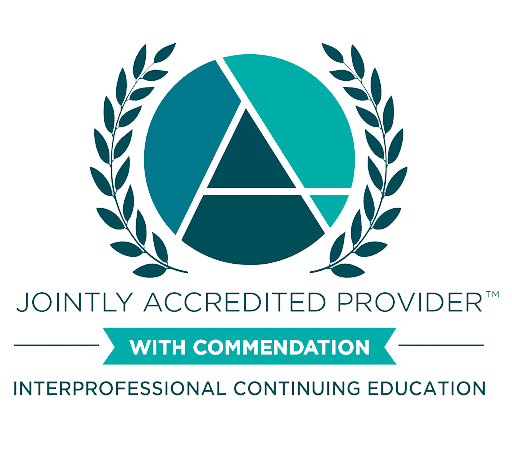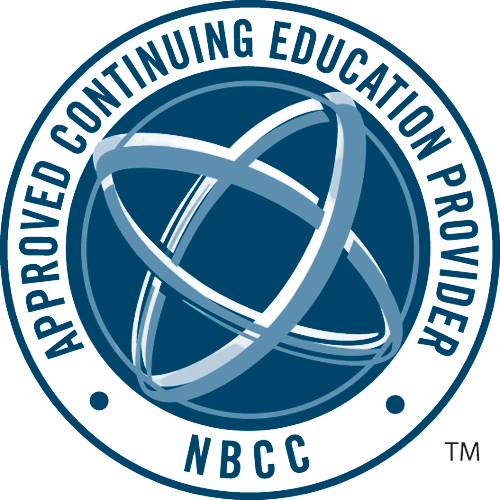A Resource for Healthcare and Social Services Professionals
June 27, 2024
9:00 am–11:00 am ET
This two-hour, virtual course is designed to provide a history of the nurse care manager (NCM) model of office-based addiction treatment, explain how the model increases treatment access, and identify the roles of the nurse manager and interprofessional care team members to sustain the model. Participants will recognize the NCM as an advocate and a source of evidence-based treatment for teams and community partners. Participants will also develop an understanding of workflows to sustain the daily operations of the NCM model.
Via Zoom
This two-hour, virtual course is designed to provide a history of the nurse care manager (NCM) model of office-based addiction treatment, explain how the model increases treatment access, and identify the roles of the nurse manager and interprofessional care team members to sustain the model. Participants will recognize the NCM as an advocate and a source of evidence-based treatment for teams and community partners. Participants will also develop an understanding of workflows to sustain the daily operations of the NCM model.
Nurses, Social Workers, LMHCs, LADCs, CADCs, and anyone who works patients with substance use disorder.
Andrea is a clinical nurse educator for Boston Medical Center's Grayken Center for Addiction Training and Technical Assistance, where she contributes to the development and delivery of continuing education programs, peer-reviewed publications, evidence-based clinical guidelines, and other resources for providers supporting patients with substance use disorders. She is also a family nurse practitioner at Boston Medical Center, an assistant professor of medicine at the Boston University Chobanian & Avedisian School of Medicine, and conducts research in the use of telehealth and coordinated care for persons with opioid use disorder and depression. Andrea is an active member of the Boston University Medical Group Advanced Practice Provider Council and the Massachusetts Coalition of Nurse Practitioners. Andrea has worked with vulnerable populations for over 10 years including managing substance use disorders and overall healthcare for persons experiencing homelessness with the Boston Health Care for the Homeless Program. She is a term lecturer and preceptor for nurse practitioner students at the Massachusetts General Hospital Institute of Health Professions (IHP) and received her Doctor in Nursing Practice (DNP) degree from the IHP in 2018. She also holds certification as a Certified Addiction Registered Nurse - Advanced Practice (CARN-AP) through the Addictions Nursing Certification Board (ANCB).
Nancy Regan-Brooks, MSN, FNP, CNM, CARN-APNancy is a clinical nurse educator for Boston Medical Center's Grayken Center for Addiction Training and Technical Assistance, where she contributes to the development and delivery of continuing education programs, peer-reviewed publications, evidence-based clinical guidelines, and other resources for providers supporting patients with substance use disorders. Nancy is also a nurse practitioner, board certified in both family medicine and midwifery with over a decade of experience working in addiction treatment. Prior to joining the Grayken TTA team, Nancy held a position as director of the substance use disorder program at the Community Health Center of Cape Cod, where she maintains clinical practice. Nancy began her career in a community health center in South Boston managing a wide range of pediatric, prenatal, and adult patients. She later transitioned to addiction medicine at High Point Treatment Center in Jamaica Plain where she worked in an acute treatment setting of medically supervised detoxification and treated acute and chronic medical issues on a Crisis Stabilization Services Unit. Nancy also participated in the HEALing Communities Study — a multi-state study funded by the National Institute on Drug Abuse aimed at reducing overdose deaths — as a lead community partner, facilitating treatment on demand and engaging and empowering other community providers. She received her Master of Science in Nursing (MSN) in 2011 from the Massachusetts General Hospital Institute of Health Professions and her Master of Science in Nursing Midwifery in 2017 from Frontier Nursing University. She also holds certification as a Certified Addiction Registered Nurse – Advanced Practice (CARN-AP) through the Addictions Nursing Certification Board (ANCB).
Boston Medical Center Grayken Center for Addiction Training and Technical Assistance, Department of Public Health, Bureau of Substance Addiction Services (DPH/BSAS)
Funding for out of state attendees is provided by the Opioid Response Network (ORN).
Funding for this initiative was made possible (in part) by grant no. 1H79TI085588-02 from SAMHSA. The views expressed in written conference materials or publications and by speakers and moderators do not necessarily reflect the official policies of the Department of Health and Human Services; nor does mention of trade names, commercial practices, or organizations imply endorsement by the U.S. Government.
REQUIREMENTS for credit
Please note this policy is strictly enforced for accreditation purposes. Participants will forfeit collection of credit and certificates of completion if more than 10 minutes of the training is missed.
Joint Accreditation Statement for Nursing and Social Work
 In support of improving patient care, Boston University Chobanian & Avedisian School of Medicine is jointly accredited by the Accreditation Council for Continuing Medical Education (ACCME), the Accreditation Council for Pharmacy Education (ACPE), and the American Nurses Credentialing Center (ANCC), to provide continuing education for the healthcare team.
In support of improving patient care, Boston University Chobanian & Avedisian School of Medicine is jointly accredited by the Accreditation Council for Continuing Medical Education (ACCME), the Accreditation Council for Pharmacy Education (ACPE), and the American Nurses Credentialing Center (ANCC), to provide continuing education for the healthcare team.
Nursing
Nursing Contact Hours: 2.00 contact hours, of which 1.00 are eligible for pharmacology credit.
Social Work
As a Jointly Accredited Organization, Boston University Chobanian & Avedisian School of Medicine is approved to offer social work continuing education by the Association of Social Work Boards (ASWB) Approved Continuing Education (ACE) program. Organizations, not individual courses, are approved under this program. Regulatory boards are the final authority on courses accepted for continuing education credit. Social workers completing this course receive 2.00 general continuing education credits.
LMHC
 BMC Grayken Center of Addiction TTA has been approved by NBCC as an Approved Continuing Education Provider, ACEP No. 7188. Programs that do not qualify for NBCC credit are clearly identified. BMC Grayken Center of Addiction TTA is solely responsible for all aspects of the programs. For this program, 2.00 contact hours will be offered to participants who attend the training and complete the evaluation.
BMC Grayken Center of Addiction TTA has been approved by NBCC as an Approved Continuing Education Provider, ACEP No. 7188. Programs that do not qualify for NBCC credit are clearly identified. BMC Grayken Center of Addiction TTA is solely responsible for all aspects of the programs. For this program, 2.00 contact hours will be offered to participants who attend the training and complete the evaluation.
LADC/CADC & Recovery Coach
Grayken Center for Addiction TTA is approved to offer LADC/CADCs and recovery coaches who complete this course 2.00 general continuing education credits.
Disclaimer
Continuing education (CE) requirements vary by license and jurisdiction. When requesting continuing education credits, please ensure you are following the rules and regulations determined by the board regulating your license. Boston Medical Center Grayken Center for Addiction TTA does not oversee adherence to licensing requirements and regulations.
THIS CONTINUING EDUCATION PROGRAM IS INTENDED SOLELY FOR EDUCATIONAL PURPOSES FOR QUALIFIED HEALTHCARE PROFESSIONALS. IN NO EVENT SHALL BOSTON UNIVERSITY BE LIABLE FOR ANY DECISION MADE OR ACTION TAKEN IN RELIANCE ON THE INFORMATION CONTAINED IN THE PROGRAM. IN NO EVENT SHOULD THE INFORMATION CONTAINED IN THE PROGRAM BE USED AS A SUBSTITUTE FOR PROFESSIONAL CARE. NO PHYSICIAN-PATIENT RELATIONSHIP IS BEING ESTABLISHED. IN NO EVENT SHOULD INFORMATION IN THE MATERIALS REGARDING LAWS, REGULATIONS, OR LEGAL LIABILITY BE CONSIDERED LEGAL ADVICE OR USED AS A SUBSTITUTE FOR CONSULTING WITH AN ATTORNEY.